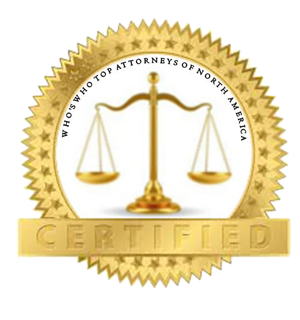
Why Is Anti-Harassment & Anti-Discrimination Training Important?
 While it is not a requirement, Massachusetts General Law Chapter 151B encourages employers to conduct education and training programs on sexual harassment for all employees on a regular basis. Employers are further advised to conduct additional training for supervisory and managerial employees, which should address their specific responsibilities as well as the steps that such employees should take to ensure immediate and appropriate corrective action in addressing harassment complaints. This is significant because employers are vicariously liable for the conduct of those persons that they place in supervisory positions.
While it is not a requirement, Massachusetts General Law Chapter 151B encourages employers to conduct education and training programs on sexual harassment for all employees on a regular basis. Employers are further advised to conduct additional training for supervisory and managerial employees, which should address their specific responsibilities as well as the steps that such employees should take to ensure immediate and appropriate corrective action in addressing harassment complaints. This is significant because employers are vicariously liable for the conduct of those persons that they place in supervisory positions.
In some cases, an employer's failure to train hiring managers and supervisors about the legal issues around discrimination law amounts to a reckless indifference of the law. Lack of such training has been found to justify an award against the employer. In cases where punitive damages may be sought, proof of training may mitigate (reduce) the damages assessed.
In order to avoid or diminish liability, appropriate detailed training must be conducted to show that the employer took reasonable care to prevent sexual harassment and discrimination in the workplace.Insufficient or poor training with improper or inappropriate information will not support an employer's good faith efforts to prevent harassment or offer a reasonable defense. Employers need more than an "in name only" policy demonstrating that one's employees watched a few videos on the computer. This approach is woefully insufficient.
Training is a preventative course of action necessary to protect the interests of all businesses; however, compliance training is not beneficial if not customized to your business culture. Attorney Figman customizes her programs so that a corporation with 80 – 120 factory employees is not receiving the same type of presentation as a 15-person healthcare practice.
 Attorney Figman's experience in litigating harassment and discrimination cases, as well as her service as a state administrative hearings officer in such cases, enhances her ability to provide high quality legally compliant training. She has completed MCAD training certification for anti-discrimination/anti-harassment programs. She develops separate training sessions for managers/supervisors and employees to ensure that each group is provided with focused comprehensive programs designed for their distinctly different needs. In addition, each training program is interactive and prepared for the employer's unique type of business and corporate culture.
Attorney Figman's experience in litigating harassment and discrimination cases, as well as her service as a state administrative hearings officer in such cases, enhances her ability to provide high quality legally compliant training. She has completed MCAD training certification for anti-discrimination/anti-harassment programs. She develops separate training sessions for managers/supervisors and employees to ensure that each group is provided with focused comprehensive programs designed for their distinctly different needs. In addition, each training program is interactive and prepared for the employer's unique type of business and corporate culture.
Specialized Management Training
All employees must be taught to recognize and avoid harassment and discrimination. But managers have additional responsibilities. In addition to learning about discrimination laws and what constitutes different types of discrimination and harassment, managers must understand their significant role in serving as the employer's first line of defense. A manager is often unaware of the proper way to address an employee's complaint or respond to a request for reasonable accommodation. Sometimes those in authority go too far and either volunteer "advice" or refuse an employee's request without knowing whether such request is considered reasonable and thus required.
In addition to PowerPoint presentations with handouts, quizzes, and activities that Figman Employment Training provides in its regular employee training programs, our management training includes in-depth case scenarios where common employee relations issues are portrayed so managers may learn to effectively communicate within the parameters of anti-harassment & discrimination laws.
Attorney Figman creates unique manager guides, which are distributed at the training and retained by the management attendees for future reference.
